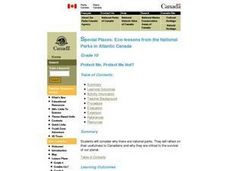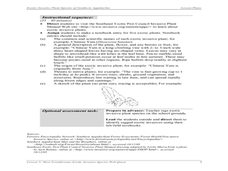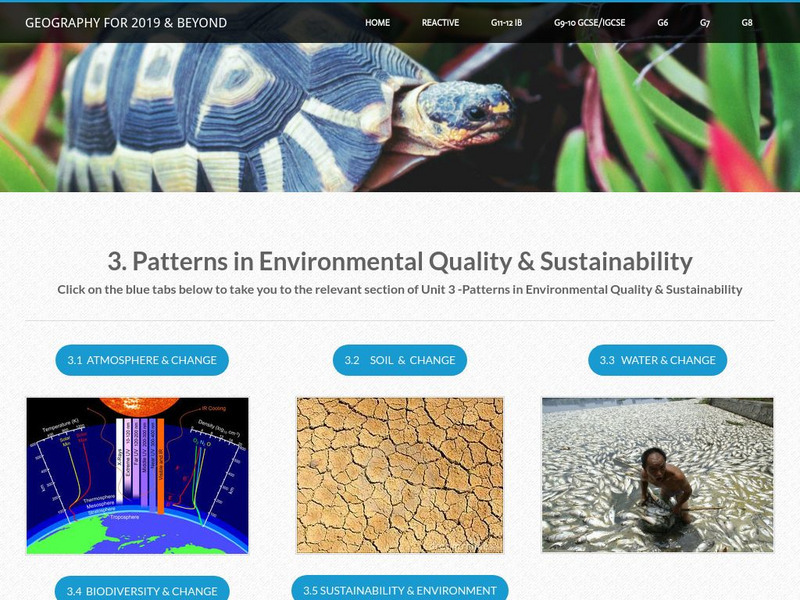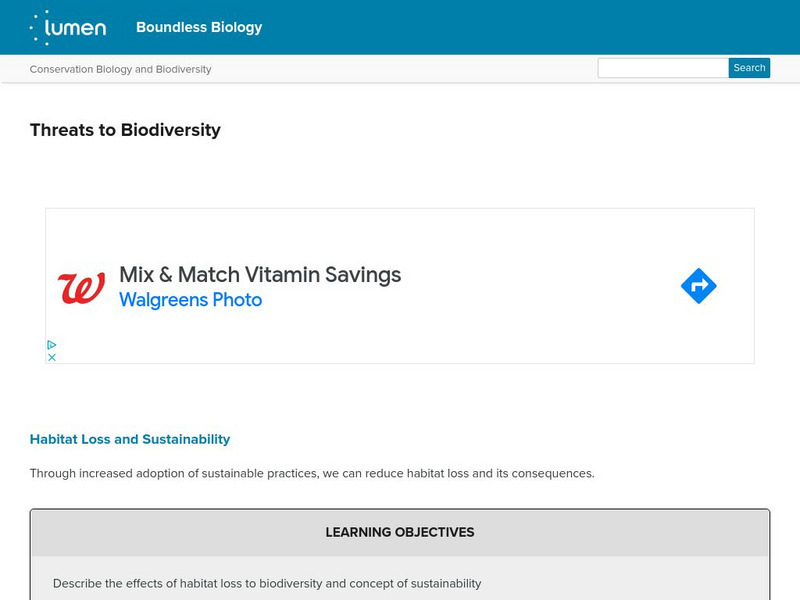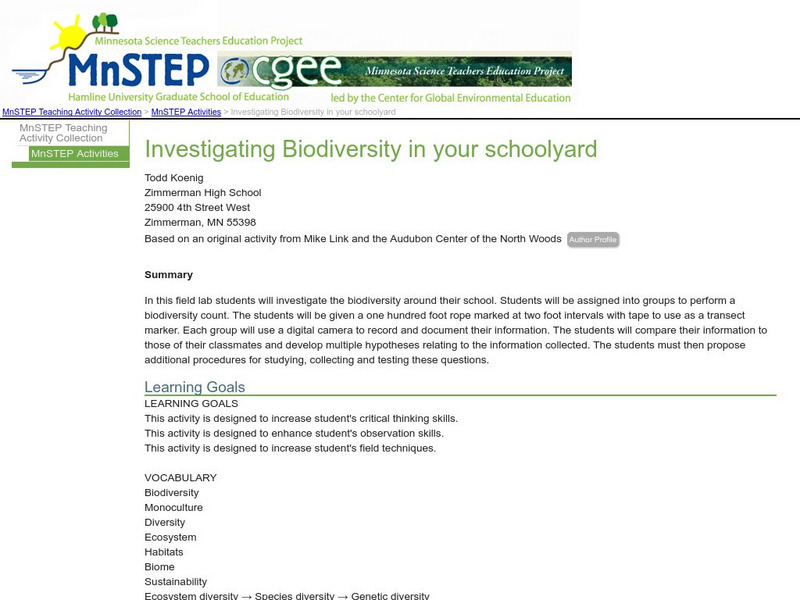Curated OER
Urban Changes
Pupils explore how landscapes undergo constant changes with urban development. They plan and build their own "city" by including features that have minimal resource demands to sustain the city itself.
Curated OER
How Can We Keep Our Forests Intact and Have Our Chocolate Too?
Fourth graders explore various methods of growing and harvesting rainforest foods in order to sustain its biodiversity. They discuss the various uses for trees from several viewpoints. Students research chocolate demand and land use...
Curated OER
National Parks in Atlantic Canada
Tenth graders research and discuss factors that have an effect on the sustainability of national park ecosystems in Canada. They examine changes in thinking that have led to new park management practices.
Curated OER
Rainforest Complexity and Diversity
Second graders investigate the diversity of plants and animals in a rainforest. They watch an online story developed by the Rainforest Alliance, observe and record animals in their local area, explore various websites, and compare and...
Curated OER
Natural Disaster
Describe how plate tectonics account for various land formations. Learners discuss different marine sanctuaries and create a poster about tectonic activity in these areas. They share their posters with the class.
Curated OER
Organic Farming / Agriculture
Want an organic farming resource packed with experiments, background information, science fair projects, and topics of interest for further research? Here it is. Young environmental scientists can explore concepts involved in organic...
Curated OER
A Tale of Two Wetlands
Students observe 2 separate wetlands (following downloadable worksheets) and record 10 similarities and 10 differences between them. Then they present their recommendations to the class who roleplay the government's wetland conservation...
Curated OER
Protecting Philippine Reefs
Students watch a slide show about the Philippine Reefs to explore the topic of fish populations. In this reef and fish population lesson plan, students watch a slide show about fish populations and how the Peace Corps...
Curated OER
The Gaia Hypothesis: An Approach to Problem Solving in the Environment
Students are introduced to the Gaia hypothesis by examining a conceptual sketch. In groups, they analyze the way they can use Dewey's method for problem solving to solve problems within the environment. They are given a problem facing...
Curated OER
What Would Halloween be Like Without the Ecuadorian Rainforest?
Fourth graders are given a number of typical Halloween treats and work in groups to determine which foods came from the Rainforest (chocolate) and which foods came from temperate regions (apples, popcorn) and treats that don't have...
Curated OER
Tread Lightly: Our Changing Climate
Students examine the concept of climate change. In this environmental studies instructional activity, students research Internet and print sources regarding global warming and discuss their research findings as well as their impressions.
Curated OER
Forestry Background
In this environment activity, high schoolers read the background information of forestry and focus upon harvesting and forest management.
Michigan Sea Grant
Fish Habitat and Humans
Strict habitat requirements are needed for the survival of fish populations and fish variety in the Great Lakes. Young scientists become experts in the basic needs of fish and understand how survival necessities can vary with different...
Curated OER
The Value of a Garden
Students will work cooperatively. For this environmental lesson plan, students will start by discussing an article and its questions prior to receiving a handout. There are two versions of the handout depending if your students are AP or...
Curated OER
Good Inventions
Learners explore global challenges and technological solutions to them. They curate a related museum exhibit titled 'Technology Benefiting Humanity.'
Curated OER
Protect Me, Protect Me Not?
Pupils brainstorm natural resources found in Canadian National Parks. They, in teams, defend and support conservation efforts and give a presentation. Evaluation consists of speaking on both pro and con sides of a national parks' issue.
Curated OER
Most Troublesome Exotic Invasive Plant Species Web Quest
Young scholars participate in a Web Quest activity in which they identify common exotic invasive plant species of the Southern Appalachian Region. After identifying the top 10 exotic invasive species, they choose one to research in depth.
Curated OER
Coral Reefs Endangered
Students research where in the world coral reefs are located. In this ecology lesson, students create food chains and food web. They simulate growing coral reefs to understand their characteristics better.
Georgia Department of Education
Ga Virtual Learning: Populations, Biodiversity and Politics of Sustainability
Students explore the value of biodiversity, the impacts that humans are having on the Earth's biodiversity, and measures that can be taken to preserve biodiversity.
Geographypods
Geographypods: Patterns in Environmental Quality and Sustainability
This collection of five learning modules looks at issues related to environmental change and sustainability. Topics addressed include changes in the atmosphere, soil, water, and biodiversity, and what can be done to counteract this and...
Lumen Learning
Lumen: Boundless Biology: Threats to Biodiversity
Looks at the impact of overharvesting, such as overfishing, on biodiversity. It talks of the 'tragedy of the commons,' where harvesters do not feel responsible for protecting a species because they fish in shared areas. It also touches...
Science Education Resource Center at Carleton College
Serc: Investigating Biodiversity in Your Schoolyard
For this field lab, students will investigate the biodiversity around their school and record and document the information they find. The students will compare their information to those of their classmates, develop multiple hypotheses...
American Museum of Natural History
American Museum of Natural History: O Logy: Bio Benefits
What does it take to keep our planet livable? What are the things we need to sustain life? The Bio-Benefits site answers these questions and others pertaining to basic life needs. Click on the hyperlinked words to see interactive...


















